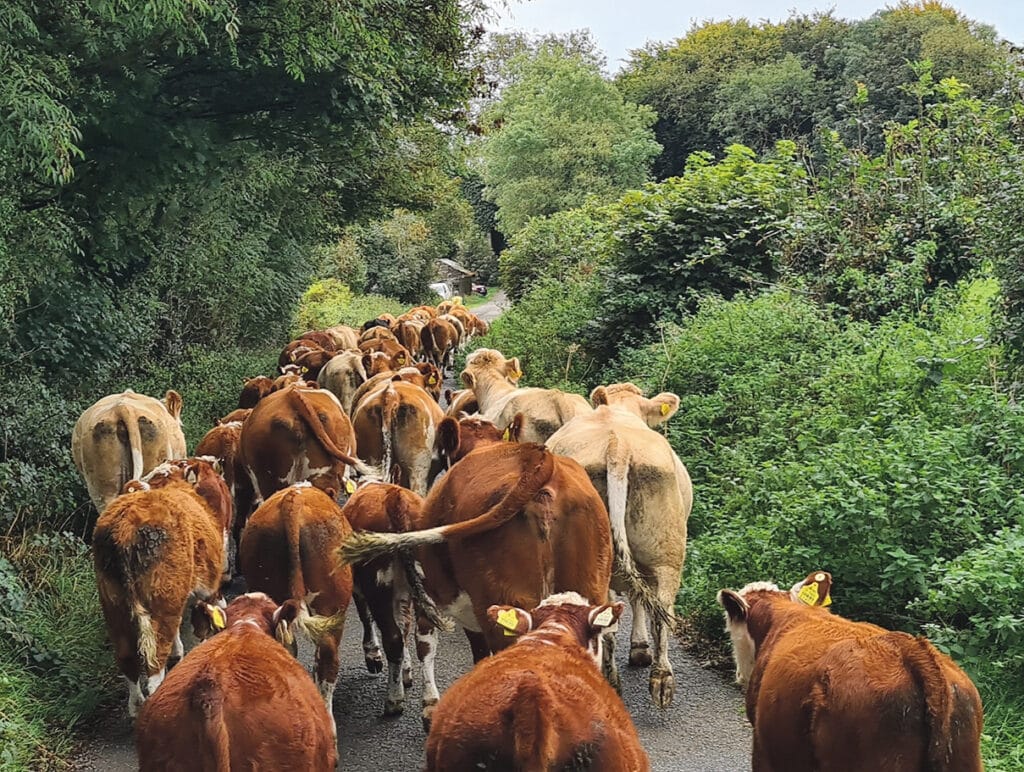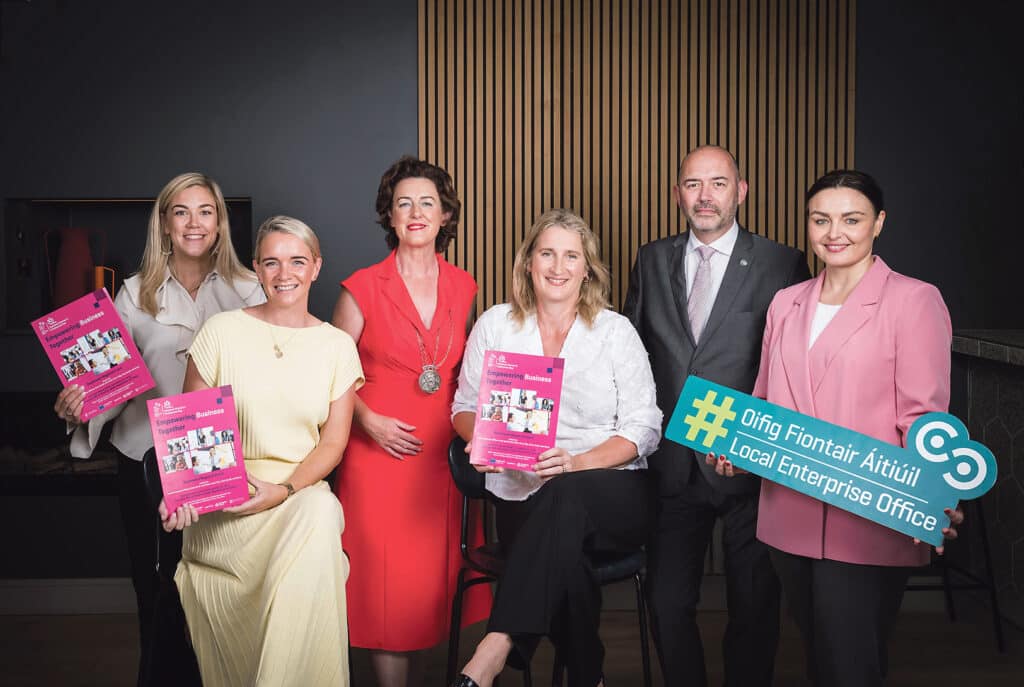
It’s been a disheartening backend! I thought we might get a run of settled dry weather in September given how wet things were in July and August but it wasn’t to be with Storm Agnes adding yet more wind and rain to deal with. Dock leaves in the field closest to the sea were blackened by salt water blown from the south east winds in the early hours of Storm Agnes. Places where cattle congregated to shelter from the south, east, south and south west could all be clearly seen.
Cattle were finished up in paddocks days ahead of schedule if conditions were dry. There are good covers of grass around, as it has been warm but stock are walking it into the ground more, as they are unsettled and ground conditions are only so-so. Part of that is my own fault. With rain and wind changing direction, I gave them larger runs in order to have different shelter options, as wind direction varies. You may recall that a week after the mini heatwave we were hit with cold northerly winds. That changeable weather has made managing stock at grass tricky.
Sherkin island weather station recorded an average rainfall of roughly 120mm for July, August and September. That’s 30 to 40mm above the long-term average for that period. Those figures are consoling me in a way but only to confirm what the last three months felt like. It’s like we’re after 14 weeks where rain has made a regular appearance and it’s been difficult to catch a break.
TB testing
As a result, and influenced by a TB test at the start of October, over half the cattle were housed for September 30. It’s largely for convenience and not having to round up a lot of groups on the morning of a test but it will give ground a chance to recover too and the plan is to leave them back out once that is over.
TB testing means uncertainty for that week and beyond it too, you don’t know what way things will fall with it, so I find it best not to make concrete plans until after. The farm is out of your control as such for the period between the two test days and that uncertainty is something I hate about the week, even more than the hassle of rounding cattle up.
Nitrates derogation
Uncertainty is in the air for any farmer availing of a nitrate’s derogation too. That’s roughly 7,000 farmers nationally, the majority of whom are involved in dairy. News that the EU Commissioner for the Environment, Mr. Virginijus Sinkevičius confirmed that there was no prospect of re-opening the current Commission Decision conferring a derogation from standard Nitrates Directive rules on Ireland has caused consternation across Irish agriculture, most notably in the dairy sector.
At present, Ireland’s derogation permits the use of up to 250 kg per hectare on derogation farms. These vary in size from small to large and these more intensively stocked farms apply a range of additional measures beyond standard requirements to mitigate the risk to water quality. The average herd size for a farmer supplying Carbery is 90 cows with approximately 30 per cent of the milk pool supplied by those milking between 60 to 70 cows, a 12 per cent destock would prove a significant economic challenge to those producers.
The inclusion of ‘“certain areas” in the Commissions message to the Minister offers the possibility of the 250kg N/Ha derogation remaining albeit within the aforementioned “certain areas”. Minister McConalogue appeared to confirm this in the Oireachtas committee meeting recently. If that’s the case, judging by the ‘Red Map’ produced in the EPA’s ‘Water quality monitoring report on nitrogen and phosphorus concentrations in Irish waters 2022’, West Cork looks to be remaining at 250kg N/Ha, for now.
Further detail on who is included and what will happen if a farmer has land in both zones was expected at the end of September but there’s no sign of it yet. Presently it appears that could mean a one year stay of execution for farmers operating above the new 220kg N/ha limit and the derogation issue doesn’t look like its going away any time soon.
Now most of these issues will change for the better but right now I wouldn’t like to be in the boots of a dairy farmer. Dealing with one of bad weather, a drop of almost 25c/l since last year in milk price and not knowing what you’re able to do with your business in three months’ time would be a challenge, but all three make for an uncertain few weeks for the sector in the short term.



